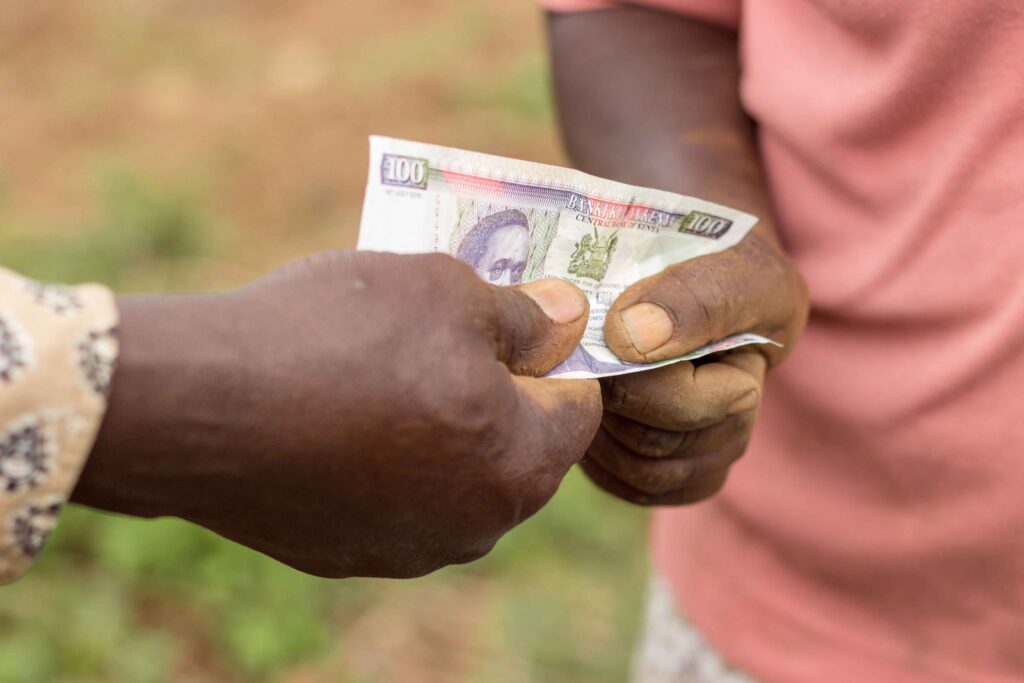Kenyan shilling nose dives
The Kenyan shilling commenced the year at 123 units against the dollar, experiencing a subsequent depreciation of 30 units over the past 12 months, reaching an unprecedented low of 154.40 units.
 The Kenyan shilling commenced the year at 123 units against the dollar, experiencing a subsequent depreciation of 30 units over the past 12 months, reaching an unprecedented low of 154.40 units.
The Kenyan shilling commenced the year at 123 units against the dollar, experiencing a subsequent depreciation of 30 units over the past 12 months, reaching an unprecedented low of 154.40 units.
The local currency, subject to volatility managed through forex reserves at the Central Bank of Kenya (CBK) due to the absence of the International Monetary Fund (IMF) cautionary facility since 2018, has depreciated significantly. It has weakened by 10% against the British Pound and nearly 6% against the Euro.
In the regional context, the Kenyan shilling has devalued by at least 20% against neighboring currencies within a year, diminishing its historical dominance. This trend poses challenges for traders importing goods from Uganda and Tanzania.
Presently, the Kenyan currency stands approximately 19.7% lower than the Ugandan shilling compared to mid-July last year, while its value against the Tanzanian shilling and Rwandese franc has declined by 12.1% and 4.4%, respectively, in the same period.
According to Central Bank of Kenya (CBK) data, as of the start of trading last Friday, one Kenyan shilling averaged USh25.80, Tsh17.30, and Rwf8.30.
Comparing with March 2020, when the disruptions of Covid-19 began, the Ugandan currency has strengthened by about 29.5% against the Kenyan shilling. Similarly, the Tanzanian shilling and Rwandese franc have appreciated by 24.1% and 10.7%, respectively, during this period.
The ongoing depreciation of the shilling is adversely impacting importers, who are likely to pass on the increased costs to consumers, leading to higher living expenses as families prepare for Christmas festivities.
Despite the Central Bank of Kenya implementing various measures, including releasing a significant amount of dollars into the market to address volatility, the depreciation persists. Experts predict that the shilling may close the year at 155 units against the US dollar.
Recent allegations by the current CBK regime accuse former governor Patrick Njoroge of depleting $2.8 billion (Sh429 billion) worth of foreign exchange reserves between 2020 and early 2023 to artificially support the shilling. This action is claimed to have undermined the country’s ability to withstand global shocks.
The current CBK boss, Kamau Thugge, criticized his predecessor’s management of the foreign exchange policy, suggesting that a more timely and decisive adjustment of the benchmark rate was needed to counter the sharp depreciation of the shilling against the US dollar. The continuous decline in the Kenyan unit is contributing to a monthly inflation of the country’s debt by about Sh65 billion, constituting over two-thirds of the Sh1.2 trillion increase in the public debt stock.
The weakened shilling has led to a substantial exodus of foreign investors seeking higher-yield markets. Capital Markets Authority (CMA) data indicates that 6,256 foreign investors left the Nairobi Securities Exchange (NSE) over nine months, constituting 42% of total exits.
The NSE is currently experiencing a bear run, attributed primarily to the depreciation of the shilling and the scarcity of dollars. The market value of all stocks listed on the NSE has declined by 10.72% to Sh1.48 trillion from Sh1.66 trillion at the beginning of the year.
Although the government remains optimistic that volatilities will ease in the second half of the year as inflation subsides, the National Treasury anticipates continued recovery in forex earners, including diaspora remittances, agricultural exports, and tourism.
In the 12 months ending October 2023, inflows amounted to $4,165 million (Sh631.2 billion), compared to $3,996 million (Sh605.6 billion) in the same period in 2022. Additionally, Kenya’s tourism sector experienced a 31% increase in earnings during the first half of 2023, with a 32% rise in tourist visits.
Market analysts have observed a gradual appreciation of the local currency, with indications of marginal gains in the past seven days, generating optimism in the capital market, as reported by FX Pesa.
